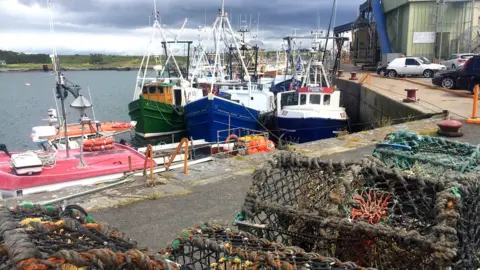Brexit: UK fishing legislation extended to NI
 BBC
BBCA key piece of Brexit legislation has been passed at Stormont, despite some assembly members saying there had not been enough time to scrutinise it.
They were debating a motion approving the extension of the UK Fisheries Bill to Northern Ireland.
It will provide a legislative framework for the industry after the end of the transition period in December.
There were concerns Covid-19 had limited the scope for the relevant committee to consider the implications.
It had one day for oral evidence in March and did its work while simultaneously considering two other important UK bills on agriculture and the environment.
Committee chairman Declan McAleer said his committee had not taken a position and he felt scrutiny had been "rushed".
He questioned whether Northern Ireland fishermen would benefit from increased fishing opportunities after Brexit.
Other concerns raised included the lack of detail on a UK fund to replace EU money for fishing infrastructure projects and how the Northern Ireland protocol, the Internal Market Bill and EU/UK trade negotiations might affect the industry
Other assembly members said they were frustrated that the requirement to fish sustainably had not been made the primary objective of the legislation and how UK fishing opportunities would be divided up amongst the devolved nations.
The Northern Ireland fleet caught £90m of fish according to the latest statistic - of that, £42m went to Britain, and £31.4m went to the EU including £7.2m to the Republic of Ireland.
Northern Ireland consumed £13.6m, while the balance went to the rest of the world.
'Competitive disadvantage'
Agriculture Minister Edwin Poots spoke passionately in favour of the motion.
He said without it Stormont could not support the industry at the end of transition and there would be no grant payments or way of licensing boats which would leave the sector at a competitive disadvantage.
Mr Poots said the bill is a framework which would allow them to build on the detail later, and that detail could be influenced by the assembly member - unlike the EU's Common Fisheries Policy (CFP).
He said he was "thankful" the UK was coming out of the CFP, saying it had "emasculated" domestic fishing fleets.
After several hours of debate the motion was passed by the assembly without a division.
